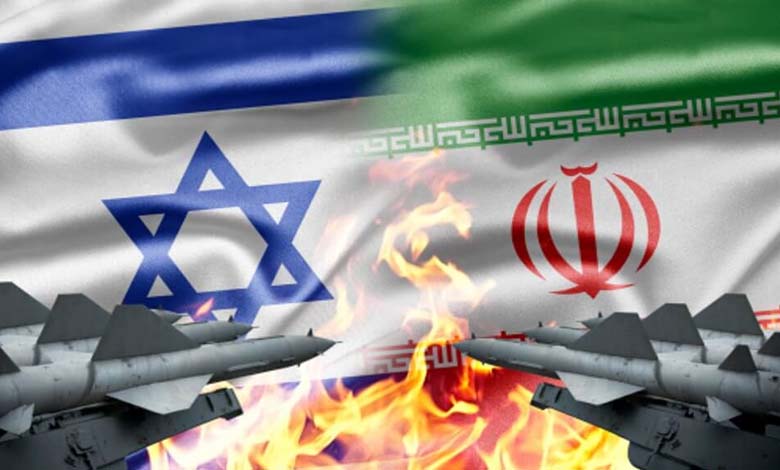Iran’s Attack on Israel: “A Gamble” or “A Trap”?

The October 1st attack was the second that Iran launched against Israel this year, involving more advanced missiles. But the question is: why did Tehran choose to confront Tel Aviv now?
-
Heaviest escalation between Hezbollah and Israel puts Lebanon on the brink of war
-
Violent Clashes Between Hezbollah and Israel Amid Preparations for Total War in Southern Lebanon
The most direct reason for this attack is “revenge,” as Iran declared it was a response to Israel’s assassination of Hamas leader Ismail Haniyeh in Tehran last July, as well as Hezbollah Secretary General Hassan Nasrallah and Revolutionary Guard commander Abbas Nilforoushan, recently in Beirut.
In addition to revenge, Foreign Policy points to another reason: Tehran may have hoped to establish some level of deterrence against Israeli arrogance after a series of military and intelligence successes in Lebanon, which dealt significant damage to Hezbollah.
-
France presents a proposal for de-escalation between Hezbollah and Israel
-
Washington seeks to contain the war between Hezbollah and Israel by sending an official to Beirut
A Risky Gamble
Regarding the revenge, Foreign Policy described it in an analysis as a “risky gamble,” as it is likely to be followed by a strong Israeli retaliation, leading to a costly spiral towards a full-scale conflict with Israel and the United States.
The magazine noted that Iran viewed the war between Israel and Hamas in Gaza as a “strategic reset for the Middle East.” This brought the Palestinian cause back to the forefront, and the rapid regional and global reaction to the war quickly created a diplomatic predicament for Israel.
-
Gaza Setback and the Success of Israeli Spies: An Analysis of Hezbollah Infiltration
-
Washington Post reveals how Lebanese pay the price for Iranian threats and ongoing Hezbollah-Israel clashes
Since the surprise attack launched by Hamas on Israeli towns on October 7th, Foreign Policy states that Tehran and its allies within the so-called “Axis of Resistance” have sought to deepen this predicament while avoiding a larger regional war that would push Iran into a direct confrontation with the U.S.
Meanwhile, Israel wanted to escape its predicament by expanding the Gaza war and putting Iran and the U.S. on a collision course.
-
Israel and Hezbollah: Is Confrontation Inevitable?
-
Leaks from the Secret Meeting: Iran Refuses to Support Hezbollah and its Iraqi Militias Against Israel
The U.S. has increased its military presence in the Middle East to support Israel against attacks by Iran and Hezbollah.
Drawing the U.S. into an Open War
If the confrontation between Tel Aviv and Iran and its allies escalates, Washington would enter the fight, turning it into an open war. Iran may realize that the assassinations of Haniyeh and Nasrallah were aimed at luring it into “this trap,” according to the same source.
-
Forest Fires in Israel: What is Hezbollah’s Involvement and What are the Consequences?
-
Israel and Hezbollah… 6 Months of “Measured Tension”
Hezbollah is Iran’s most important regional ally, and Tehran feels compelled to protect what remains of it. Moreover, Nasrallah’s death was a blow to Iran. Foreign Policy argues that failing to respond would constitute a legitimacy crisis for Tehran.
Furthermore, the blitzkrieg that Israel launched to destroy Hezbollah, starting with the destruction of hundreds of radio devices on September 17th, culminating with the death of Hassan Nasrallah and now the ground invasion, demonstrated that Israel was confident in gaining the upper hand, something Iran couldn’t allow to go unchallenged.
-
Israel targets Hezbollah on Syrian and Lebanese fronts
-
Will limited clashes between Israel and Hezbollah lead to a widespread war? Latest developments
In this regard, Foreign Policy notes that Iran’s delayed response has put it under pressure and condemnation.
Thus, the missile attack on Tuesday was a risky maneuver, but it wasn’t an impulsive reaction. It reflects more complex calculations in Tehran.
Iran wanted to show that it had the audacity and capability to strike Israel. But it also wanted to prove, as evident in the tone of coverage promoted in official and sympathetic media as well as on social media, that it is the only Middle Eastern country willing to face Israel head-on. However, this could very well lead to the war that Iran had so far hoped to avoid.
But this also increases the risks for the U.S. Iran’s goal is not merely to deter Israel but to force Washington to do so.












